‘Uncategorized’ Category
» posted on Friday, October 30th, 2015 by Linda Lou Burton
October Dazzle
 Linda Burton posting from Arkadelphia, Arkansas – As if October weren’t already my favorite month, this October dazzled. Early in the month was Garden Club, just the regular monthly meeting, but held at the Speights home where every room was decked for autumn, especially the dining room with a table centerpiece even prettier than the food. I was on the refreshment committee so got to hang out in the sunny kitchen which overlooks a stone patio complete with fountain, all tucked into the edge of the woods, trees just beginning to turn. The program was “Landscape Design,” ART in nature’s purest
Linda Burton posting from Arkadelphia, Arkansas – As if October weren’t already my favorite month, this October dazzled. Early in the month was Garden Club, just the regular monthly meeting, but held at the Speights home where every room was decked for autumn, especially the dining room with a table centerpiece even prettier than the food. I was on the refreshment committee so got to hang out in the sunny kitchen which overlooks a stone patio complete with fountain, all tucked into the edge of the woods, trees just beginning to turn. The program was “Landscape Design,” ART in nature’s purest 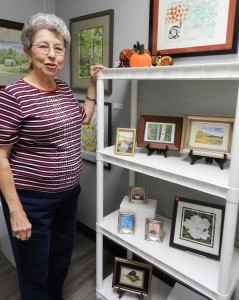 form. And then there was a three-day event, the “9th Annual Round About Artist Studio Tour,” where people come from all over the country to visit working artists’ studios, learn a little about technique, and load up the car with treasures for home. Sponsored by the Caddo River Art Guild, this year it featured 21 artists spread over the Caddo River area from Burrow Road to Whispering Ridge, with a large group showing at the Art Center downtown. ART in every form from fiber to fused glass to watercolor to wood carving.
form. And then there was a three-day event, the “9th Annual Round About Artist Studio Tour,” where people come from all over the country to visit working artists’ studios, learn a little about technique, and load up the car with treasures for home. Sponsored by the Caddo River Art Guild, this year it featured 21 artists spread over the Caddo River area from Burrow Road to Whispering Ridge, with a large group showing at the Art Center downtown. ART in every form from fiber to fused glass to watercolor to wood carving.
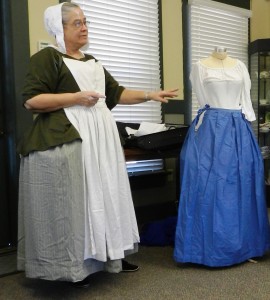 Then, last week, three events in a row, dot, dot, dot: “Dressing Henrietta” at the Clark County History Museum featured two enterprising and historically savvy DAR ladies who “dressed” a mannequin (Henrietta) in a humorous but educational presentation about clothing in the 1700s. Next was the opening reception for “Quilting Treasure: A Batik World,” at the Art Center downtown, with 42 incredible quilts from the Clark County Quilter’s Guild displayed wall to wall to wall, remaining on exhibit through November 21. The topper was “125 Years of Hats,” over at Proctor Hall on the Henderson
Then, last week, three events in a row, dot, dot, dot: “Dressing Henrietta” at the Clark County History Museum featured two enterprising and historically savvy DAR ladies who “dressed” a mannequin (Henrietta) in a humorous but educational presentation about clothing in the 1700s. Next was the opening reception for “Quilting Treasure: A Batik World,” at the Art Center downtown, with 42 incredible quilts from the Clark County Quilter’s Guild displayed wall to wall to wall, remaining on exhibit through November 21. The topper was “125 Years of Hats,” over at Proctor Hall on the Henderson 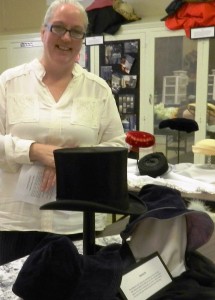 University campus, a charming and informative display of millinery history. Research was done by the Fashion Merchandising students; the hats are part of the collection of 600+ that have been donated to the University, from cloche to veiled and fur to flowered. All three events illustrated the progression of need (clothing and quilts and hats for warmth) to creativity (it can be beautiful and is fun to do). ART with needle and thread. My brain is filled with new insights and historical perspective. “But how do those events fit with capital cities, and the development of our country?” you might ask. I’ll tell you. » read more
University campus, a charming and informative display of millinery history. Research was done by the Fashion Merchandising students; the hats are part of the collection of 600+ that have been donated to the University, from cloche to veiled and fur to flowered. All three events illustrated the progression of need (clothing and quilts and hats for warmth) to creativity (it can be beautiful and is fun to do). ART with needle and thread. My brain is filled with new insights and historical perspective. “But how do those events fit with capital cities, and the development of our country?” you might ask. I’ll tell you. » read more
» posted on Sunday, August 30th, 2015 by Linda Lou Burton
The Tortoise And The Bug
Linda Burton posting from Arkadelphia, Arkansas – A blurb in the weekly newsletter from the Chamber caught my attention: Develop an Online Boost for Your Business. When I read the words Google and Search Engine Optimization, I knew this was for me. Right downtown too. It was sponsored by the Small Business and Technology Development Center, a part of Henderson State University School of Business, and operates under the Arkansas SBTDC, 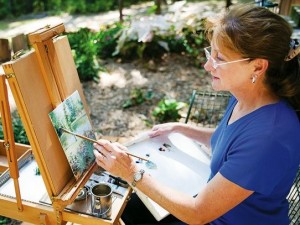 www.asbtdc.org – go to their site for other events and locations all over the state. My friend Rita Earles joined me there; she is a visual artist who does magnificent portraits and exquisite miniatures, www.ritaearlesart.com and I write about our 50 amazing capital cities, www.capitalcitiesusa.org, but we both wanted to beef up the functionality of our sites and learn what we can do to increase traffic and present ourselves in the most beneficial light.
www.asbtdc.org – go to their site for other events and locations all over the state. My friend Rita Earles joined me there; she is a visual artist who does magnificent portraits and exquisite miniatures, www.ritaearlesart.com and I write about our 50 amazing capital cities, www.capitalcitiesusa.org, but we both wanted to beef up the functionality of our sites and learn what we can do to increase traffic and present ourselves in the most beneficial light.
Chelsea Goza, the Training Coordinator for HSU’s ASBTDC, hosted the well-attended 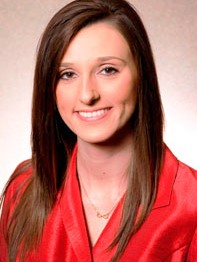 workshop, beginning with a “thinking” exercise that needed two volunteers. You know me. Of course I volunteered. No doubt the oldest one there, I found myself pitted against what surely was the youngest person sitting at the table and YIKES, we had to assemble the pieces of a puzzle in three minutes flat. Rita stood behind me and cheered me on, but it was a tortoise against a hare. The nimble-fingered young person accustomed to texting zipped her puzzle together well before the buzzer sounded. I still had two pieces missing when the program began, but hey, what does a tortoise do? Right. I never quit. I finished the puzzle, confident that I’d carefully considered each piece and thought about its value to the whole. Which is what I do as I write about each capital city. But I digress. Chelsea’s part on the program focused on getting more attention locally; next was a segment about growing our business with Google (the reigning god of the internet), and finally that SEO bit, or, “how to get picked first.” (Does that remind you of grammar school?) I eagerly went straight home to follow through on Lessons Learned, and what happened next was the scariest thing I’ve experienced since I tried to rollerskate down Killer Hill. » read more
workshop, beginning with a “thinking” exercise that needed two volunteers. You know me. Of course I volunteered. No doubt the oldest one there, I found myself pitted against what surely was the youngest person sitting at the table and YIKES, we had to assemble the pieces of a puzzle in three minutes flat. Rita stood behind me and cheered me on, but it was a tortoise against a hare. The nimble-fingered young person accustomed to texting zipped her puzzle together well before the buzzer sounded. I still had two pieces missing when the program began, but hey, what does a tortoise do? Right. I never quit. I finished the puzzle, confident that I’d carefully considered each piece and thought about its value to the whole. Which is what I do as I write about each capital city. But I digress. Chelsea’s part on the program focused on getting more attention locally; next was a segment about growing our business with Google (the reigning god of the internet), and finally that SEO bit, or, “how to get picked first.” (Does that remind you of grammar school?) I eagerly went straight home to follow through on Lessons Learned, and what happened next was the scariest thing I’ve experienced since I tried to rollerskate down Killer Hill. » read more
» posted on Thursday, July 30th, 2015 by Linda Lou Burton
Song of the South
 Linda Burton posting from Arkadelphia, Arkansas –July was Sam Time. Sam is my youngest grandchild, born and growing up in the Pacific Northwest. He went to Juneau with me on the Journey back in 2012 (read all about it in Juneau) where we went whale-watching and dog-sledding and he got to know a capital city up and down. He flew into Little Rock last summer and spent three weeks with me in Arkansas, where we made a quick-trip into Oklahoma and Texas. But I figured it was time this boy had a bona fide real-time southern experience and learned about his roots. After all, he was teetering on the cusp of teenhood, and you know how fast that goes. I planned a full-fledged Journey through the south, worthy of a Fodor review.
Linda Burton posting from Arkadelphia, Arkansas –July was Sam Time. Sam is my youngest grandchild, born and growing up in the Pacific Northwest. He went to Juneau with me on the Journey back in 2012 (read all about it in Juneau) where we went whale-watching and dog-sledding and he got to know a capital city up and down. He flew into Little Rock last summer and spent three weeks with me in Arkansas, where we made a quick-trip into Oklahoma and Texas. But I figured it was time this boy had a bona fide real-time southern experience and learned about his roots. After all, he was teetering on the cusp of teenhood, and you know how fast that goes. I planned a full-fledged Journey through the south, worthy of a Fodor review.
I met Sam’s plane in Atlanta. His “unaccompanied minor” status required a direct flight, and we were headed for Gatlinburg anyhow, so that made sense. Did you know that Hartsfield International in Atlanta is the busiest airport in the world? 95 million passengers annually, coming into 7 terminals, exiting through 201 gates. Sam emerged through Alaska’s Gate D3 (at the far end of nowhere), a little taller than last year and wearing a Seattle Seahawks shirt. “Welcome to Atlanta, home of the Braves!” I grinned. And so began Sam’s Song of the South, 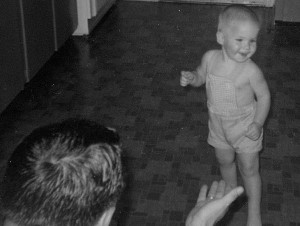 subtitled “Where Your Dad Grew Up.” I’d filled a notebook with pictures of family members he’d meet, and details about each stop we’d make. “First stop tomorrow is South Carolina,” I explained in our Atlanta motel room that night, “Ware Shoals, where we were living when your Dad was born.” I had a picture of his Dad taking his first steps, in our kitchen there on Dairy Street. My plan was to drive by and show him the house. You won’t believe how that turned out. » read more
subtitled “Where Your Dad Grew Up.” I’d filled a notebook with pictures of family members he’d meet, and details about each stop we’d make. “First stop tomorrow is South Carolina,” I explained in our Atlanta motel room that night, “Ware Shoals, where we were living when your Dad was born.” I had a picture of his Dad taking his first steps, in our kitchen there on Dairy Street. My plan was to drive by and show him the house. You won’t believe how that turned out. » read more
» posted on Thursday, May 21st, 2015 by Linda Lou Burton
April Makes May
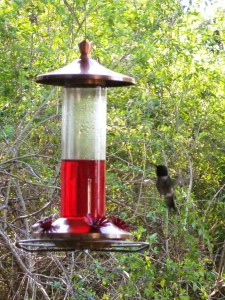 Linda Burton posting from Arkadelphia, Arkansas – “I’m glad you were born in April,” Mother used to say. “That way I wasn’t pregnant in the hot summertime.” I’m glad too, April is such a promising month. Showers and flowers and Easter parades and (when I was a little girl) dotted-swiss pinafores. This year I was gifted with birthday cupcakes on April 4, and new bird feeders, and the return of the hummingbirds, apparently none the worse for that long flight back from wherever they wintered. The good news for April is – I met my March 31 deadline and managed to get 51 new Pages set up on this website. The bad news is – it cost me my right arm. Seriously, all those computer hours shut down my arm muscles. I knew I was in a hurt, but the disaster element sunk in when I was unable to lift my arm high enough to put away a glass on the second shelf of the cupboard.
Linda Burton posting from Arkadelphia, Arkansas – “I’m glad you were born in April,” Mother used to say. “That way I wasn’t pregnant in the hot summertime.” I’m glad too, April is such a promising month. Showers and flowers and Easter parades and (when I was a little girl) dotted-swiss pinafores. This year I was gifted with birthday cupcakes on April 4, and new bird feeders, and the return of the hummingbirds, apparently none the worse for that long flight back from wherever they wintered. The good news for April is – I met my March 31 deadline and managed to get 51 new Pages set up on this website. The bad news is – it cost me my right arm. Seriously, all those computer hours shut down my arm muscles. I knew I was in a hurt, but the disaster element sunk in when I was unable to lift my arm high enough to put away a glass on the second shelf of the cupboard.
I whined my way into the doctor’s office who promptly sent me across the street to the hospital and the therapy unit. A cheerful but unrelenting Kevin pulled and tugged my shoulder, slapped on a hot pack, and coerced me into a promise to do every exercise on the instruction sheet at least three times a day and to come back three times a week till I could move again. So, I did. And now, I can. But I didn’t write a lick for a month. I guess “behind” is my middle name. On top of that, I had some unwelcome visitors. » read more
» posted on Thursday, January 1st, 2015 by Linda Lou Burton
Welcome!
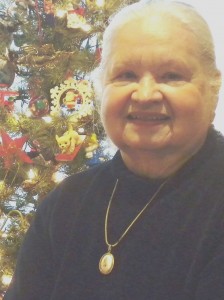 Linda Burton posting from Arkadelphia, Arkansas – Did you get my letter? Are you a regular visitor? Either way, I am glad you are here, and I welcome you to Capital Cities USA. Let me show you around.
Linda Burton posting from Arkadelphia, Arkansas – Did you get my letter? Are you a regular visitor? Either way, I am glad you are here, and I welcome you to Capital Cities USA. Let me show you around.
Right now, you’ll find mostly POSTS – reports I wrote during the Journey, and posted day by day between February 2012 and now. They are impressions of what I saw that day, or new information I gathered. Read POSTS from each of the 50 capital cities by going to the dark blue column on the right, and clicking on the city you want to read about. Some cities have more POSTS than others (I apologize) though I continue to transcribe my notes and share them, so keep watching. Our national capital, Washington DC, is also in this column.
I am creating PAGES now. Follow the tabs on the dark blue bar across the top.
- ABOUT. Read that PAGE first – it explains what Capital Cities USA has done, and will do, and the purpose and goals of the organization. It also lists the officers and directors, and contact information.
- CAPITAL CITIES. That tab takes you to a PAGE with an alphabetical listing of capital cities. Click on the one you want to read about. You’ll find facts about the beginnings of each city, and statistics about population, education, and more. This section of the site is growing slowly, so check back frequently for updates. Estimated completion date: March 31.
- CAPITAL KIDS. The kids PAGES will have everything from help for homework to stories and games for fun. Maybe some stories by the Capital Cats! Estimated development start date: April 1.
- CAPITOL BUILDINGS. These PAGES have not yet been developed. But they will contain information about the capitol building in each state. There will be statistics and stories, and many photos of the magnificent structures. Estimated development start date: July 1.
- SEARCH. See the gray-blue box to the left of the SEARCH button at the top? Type what you’re looking for in there, it will find articles that match. Try “chili” or “bathtub” and see what comes up! Or your name. Or seriously, “George Washington” (with the quotes, of course).
- RED CALENDAR. Click on any date on the calendar that is “live” (underlined) and go directly to the POST for that date.
- ARCHIVES. Gold column. Select any month/year and go directly to all POSTS for that time period.
- RECENT POSTS. Gold column. The five most recent POSTS, by name.
- BLUE COLUMN. Near the bottom of the dark blue column see “X Arkadelphia,” “Y Traveling Between,” “Z Summaries.” Self-explanatory. Go to “Z Summaries” for an overview of the Journey in segments of five cities grouped, it’s the most fun reading!
Maybe you prefer to just scroll down and read each entry in the order posted. That’s a good approach too, take your time and read them all.
» posted on Sunday, December 21st, 2014 by Linda Lou Burton
Stick A Fork In Me
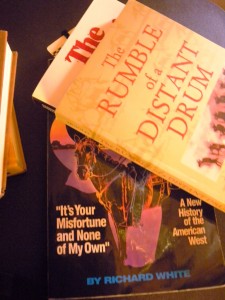 Linda Burton posting from Arkadelphia, Arkansas – Today is the first day of winter. And you can stick a fork in me, I’m done with autumn, worn out. My dance card has been filled cover to cover these last three months, no time to spare. So what in heck has been going on? First there was the scare with brother Craig; heart problems, surgery required. I spent a week in Alabama, an anxious time. He’s recovering now, riding his exercise bike and gaining strength. His friends and neighbors rallied round, bringing smiles and encouragement and cheer; God bless them all. What would we do without our friends? And I’ve been reading and studying like a fool; the Paleo-Indians, the mound builders, the Spanish conquerors, the French traders, the British and their kings. The wars, and alliances. The grabbing for land, the motives, and the outcomes. Dizzying in scope, the
Linda Burton posting from Arkadelphia, Arkansas – Today is the first day of winter. And you can stick a fork in me, I’m done with autumn, worn out. My dance card has been filled cover to cover these last three months, no time to spare. So what in heck has been going on? First there was the scare with brother Craig; heart problems, surgery required. I spent a week in Alabama, an anxious time. He’s recovering now, riding his exercise bike and gaining strength. His friends and neighbors rallied round, bringing smiles and encouragement and cheer; God bless them all. What would we do without our friends? And I’ve been reading and studying like a fool; the Paleo-Indians, the mound builders, the Spanish conquerors, the French traders, the British and their kings. The wars, and alliances. The grabbing for land, the motives, and the outcomes. Dizzying in scope, the 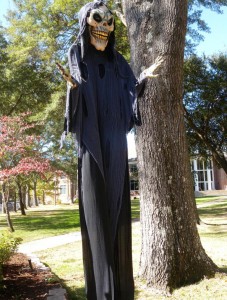 settlement of our country, pieced together state by state. The Henderson campus was lively in October; students thumbed their cellphones as they rushed here to there; pressure building, papers due. Henderson Halloween allowed a little fun, the campus decorated from tree-top to fence-post with spidey-webs and ghosties and green-eyed witches wearing black hats. Every kid in Arkadelphia was invited for Trick or Treating, candy-laden tables
settlement of our country, pieced together state by state. The Henderson campus was lively in October; students thumbed their cellphones as they rushed here to there; pressure building, papers due. Henderson Halloween allowed a little fun, the campus decorated from tree-top to fence-post with spidey-webs and ghosties and green-eyed witches wearing black hats. Every kid in Arkadelphia was invited for Trick or Treating, candy-laden tables 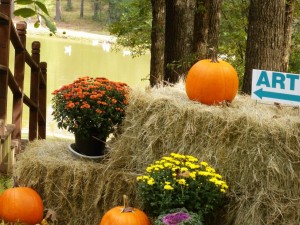 were sponsored by campus organizations and manned by students. But the Round About Artist Studio Tour was even before that, the major Caddo River Arts Guild event of the year, when people come from everywhere to visit working artists’ studios in our Caddo River region. Do you know about miniatures, and Rita Earles? » read more
were sponsored by campus organizations and manned by students. But the Round About Artist Studio Tour was even before that, the major Caddo River Arts Guild event of the year, when people come from everywhere to visit working artists’ studios in our Caddo River region. Do you know about miniatures, and Rita Earles? » read more
» posted on Monday, September 22nd, 2014 by Linda Lou Burton
My El Grande Lovebug
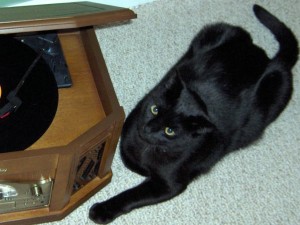 Linda Burton posting from Arkadelphia, Arkansas – Today is the first day of autumn, normally a happy time, but today, it’s not. Jack died this morning at 9:01. This may be the hardest post I’ve ever written. It was a sad day when Alex died in March, but I didn’t write about it till more than a week had passed. “I didn’t expect to have my heart broken twice in the same year,” I told the family, as I explained the events that caught us all by surprise. Yes, he was too fat. And no, he didn’t exercise much any more. All visitors this summer were charged with getting Jack to “roll over.” Dangle the play-strings across his back, count how many times he’d respond with enthusiasm. Not many; he much preferred putting his
Linda Burton posting from Arkadelphia, Arkansas – Today is the first day of autumn, normally a happy time, but today, it’s not. Jack died this morning at 9:01. This may be the hardest post I’ve ever written. It was a sad day when Alex died in March, but I didn’t write about it till more than a week had passed. “I didn’t expect to have my heart broken twice in the same year,” I told the family, as I explained the events that caught us all by surprise. Yes, he was too fat. And no, he didn’t exercise much any more. All visitors this summer were charged with getting Jack to “roll over.” Dangle the play-strings across his back, count how many times he’d respond with enthusiasm. Not many; he much preferred putting his 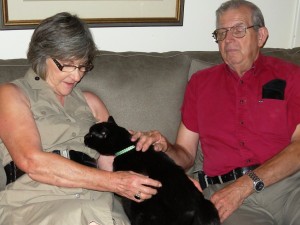 head in your lap while you stroked him. He was diagnosed with onset kidney disease in June, and we changed his diet, though his numbers weren’t that far out of line. He remained a people cat, snuggling against anyone who’d allow it. He followed me from room to room; cozy on the office sofa while I worked; taking one end of the living-room sofa while I took the other as we watched our favorite TV shows in the evening. When I got into
head in your lap while you stroked him. He was diagnosed with onset kidney disease in June, and we changed his diet, though his numbers weren’t that far out of line. He remained a people cat, snuggling against anyone who’d allow it. He followed me from room to room; cozy on the office sofa while I worked; taking one end of the living-room sofa while I took the other as we watched our favorite TV shows in the evening. When I got into 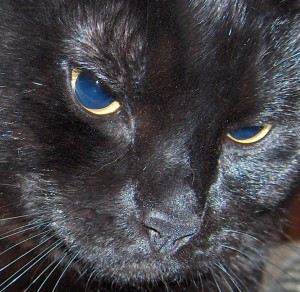 bed at night, I’d call his name, and soon I’d hear his toenails clicking on the hardwood floor. He’d jump on the bed and start circling round, then suddenly he’d jump down again. Just like old folks. “Darn, I forgot to go to the bathroom.” He’d trot off to his litterbox and then jump up again, this time for the night. Jack never demanded anything; for the ten years of his life he was simply lovebug sweet. My big fat black cat, El Grande, someone called him once. » read more
bed at night, I’d call his name, and soon I’d hear his toenails clicking on the hardwood floor. He’d jump on the bed and start circling round, then suddenly he’d jump down again. Just like old folks. “Darn, I forgot to go to the bathroom.” He’d trot off to his litterbox and then jump up again, this time for the night. Jack never demanded anything; for the ten years of his life he was simply lovebug sweet. My big fat black cat, El Grande, someone called him once. » read more
» posted on Monday, August 25th, 2014 by Linda Lou Burton
A New Pencil Box
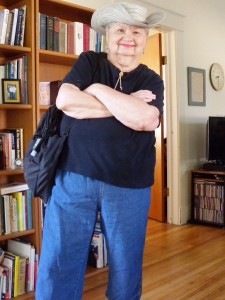 Linda Burton posting from Arkadelphia, Arkansas – A new pencil box and the first day of school. Who is old enough to remember the fresh wood smell of newly sharpened pencils? I’m thinking about that as I put on my hat and head out the door for my first day of classes at Henderson. The American West and Arkansas History; that’s my course of study this semester. Why? On the Journey I explored almost every inch of the “western” states but was left with more questions than answers by the end of it. I want to learn more about the legislation that opened those vast lands for settlement, the many treaties with the natives who were already living there, the creation of the new states; in other words, the expansion of our country throughout the 19th century. All to make this site more useful for everyone who accesses it. The Arkansas History class will help with that too, and additionally will provide insights about the emigration of my ancestors who died here in 1849 on their move from Alabama to Texas. Ancestors. A little family talk now. And “how I spent my summer
Linda Burton posting from Arkadelphia, Arkansas – A new pencil box and the first day of school. Who is old enough to remember the fresh wood smell of newly sharpened pencils? I’m thinking about that as I put on my hat and head out the door for my first day of classes at Henderson. The American West and Arkansas History; that’s my course of study this semester. Why? On the Journey I explored almost every inch of the “western” states but was left with more questions than answers by the end of it. I want to learn more about the legislation that opened those vast lands for settlement, the many treaties with the natives who were already living there, the creation of the new states; in other words, the expansion of our country throughout the 19th century. All to make this site more useful for everyone who accesses it. The Arkansas History class will help with that too, and additionally will provide insights about the emigration of my ancestors who died here in 1849 on their move from Alabama to Texas. Ancestors. A little family talk now. And “how I spent my summer 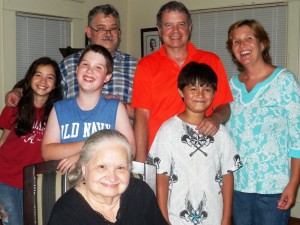 vacation.” Since I’m settled in one place with plenty of room for visitors, I invited, and they came! Grandson Andrew arrived June 21; grandson Sam July 12. Andrew left July 16; son Mike, and his Brenda, and her grandson Michael arrived July 31. Granddaughter Kayla and son Rick arrived August 2. Mike and Brenda and Michael left August 3; Sam left August 6. Rick and Kayla left August 16. Did you notice? There was a perfect alignment of planets on August 2. » read more
vacation.” Since I’m settled in one place with plenty of room for visitors, I invited, and they came! Grandson Andrew arrived June 21; grandson Sam July 12. Andrew left July 16; son Mike, and his Brenda, and her grandson Michael arrived July 31. Granddaughter Kayla and son Rick arrived August 2. Mike and Brenda and Michael left August 3; Sam left August 6. Rick and Kayla left August 16. Did you notice? There was a perfect alignment of planets on August 2. » read more
» posted on Saturday, June 21st, 2014 by Linda Lou Burton
Drifts of Spring
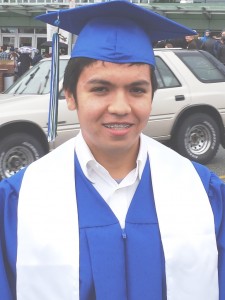 Linda Burton posting from Arkadelphia, Arkansas – Today is the first day of summer. And I head to Little Rock shortly, and the airport. I’m picking up Grandson Andrew, who just graduated (with honors) from Shorewood High in Seattle. We had two graduations this spring; Grandson Justin graduated (with honors) from the University of
Linda Burton posting from Arkadelphia, Arkansas – Today is the first day of summer. And I head to Little Rock shortly, and the airport. I’m picking up Grandson Andrew, who just graduated (with honors) from Shorewood High in Seattle. We had two graduations this spring; Grandson Justin graduated (with honors) from the University of 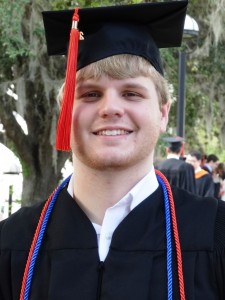 Florida in Gainesville. Congratulations boys, you make your grandma proud. Good job! Spring has been a whirlwind of weather, and color. Yellow daffodils exploded all over the yard; wisteria vines twined themselves around every tree, in an effort to take over the world, trying to placate us with their sweet smell and cascades of purple blooms. “Don’t mind me, I’m pretty!” Ha. I entered the Arts Center Photography Contest in April, and what would I choose other than capitol domes to show? Arizona’s copper shine, Iowa’s glittering gold; Maryland’s colonial style in wood, with balcony walks. I didn’t win a prize, but working on the prints was satisfying work and one small step in bringing the glory of our capitols to
Florida in Gainesville. Congratulations boys, you make your grandma proud. Good job! Spring has been a whirlwind of weather, and color. Yellow daffodils exploded all over the yard; wisteria vines twined themselves around every tree, in an effort to take over the world, trying to placate us with their sweet smell and cascades of purple blooms. “Don’t mind me, I’m pretty!” Ha. I entered the Arts Center Photography Contest in April, and what would I choose other than capitol domes to show? Arizona’s copper shine, Iowa’s glittering gold; Maryland’s colonial style in wood, with balcony walks. I didn’t win a prize, but working on the prints was satisfying work and one small step in bringing the glory of our capitols to 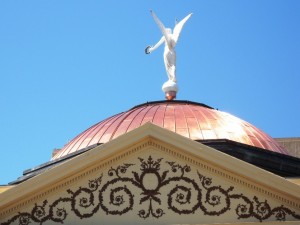 new eyes. I wasn’t allowed a writeup to post beside, but if I had, you know I would have bragged. You can take the time now to click on the link to Phoenix, and Des Moines, and Annapolis (blue column to the right), and you’ll see. History. We’re all a part of it; all connected; we all breathe the same air. It’s important to pay attention to those big-picture scenes, and the finer details too. Like the dinner at the Museum, From the Forest to the Table it was called, where we partook of foods the early settlers would have eaten. » read more
new eyes. I wasn’t allowed a writeup to post beside, but if I had, you know I would have bragged. You can take the time now to click on the link to Phoenix, and Des Moines, and Annapolis (blue column to the right), and you’ll see. History. We’re all a part of it; all connected; we all breathe the same air. It’s important to pay attention to those big-picture scenes, and the finer details too. Like the dinner at the Museum, From the Forest to the Table it was called, where we partook of foods the early settlers would have eaten. » read more
» posted on Thursday, March 20th, 2014 by Linda Lou Burton
Winter’s Woes, and Wonders
 Linda Burton posting from Arkadelphia, Arkansas – Today is the first day of spring. An entire season has passed since the Scion stopped in Arkadelphia last December. So many wonderful things have happened in the last three months, but there’s an overwhelming sadness too. On March 11 our dear companion Alex died. Alex came into my life in December 1997; a grand and joyful Christmas that was! The vet estimated his age to be eight months, a foundling from the pound, history unknown. He remained my faithful friend for seventeen years, moving cross-country with me twice, and recently, of course, making the
Linda Burton posting from Arkadelphia, Arkansas – Today is the first day of spring. An entire season has passed since the Scion stopped in Arkadelphia last December. So many wonderful things have happened in the last three months, but there’s an overwhelming sadness too. On March 11 our dear companion Alex died. Alex came into my life in December 1997; a grand and joyful Christmas that was! The vet estimated his age to be eight months, a foundling from the pound, history unknown. He remained my faithful friend for seventeen years, moving cross-country with me twice, and recently, of course, making the journey to 48 of the states as part of our little troop. He died in my arms, just after midnight; his tiny body succumbing to the effects of hyperthyroidism, and methimazole; his nine lives used up, at last. “Why would you take a cat on such a long trip,” someone asked me once. “Why didn’t you leave him at home?” “I was his home,” I replied. And he was mine. Every place I’ve been has felt like home because of Alex. A picture of him in the bloom of life graces the front of a walnut box on a shelf in our living room now, his ashes tucked inside. He always liked hidey spots! Under the bedspread (making a prominent lump). On top of the refrigerator. On top of the cabinet above the refrigerator. Beneath the
journey to 48 of the states as part of our little troop. He died in my arms, just after midnight; his tiny body succumbing to the effects of hyperthyroidism, and methimazole; his nine lives used up, at last. “Why would you take a cat on such a long trip,” someone asked me once. “Why didn’t you leave him at home?” “I was his home,” I replied. And he was mine. Every place I’ve been has felt like home because of Alex. A picture of him in the bloom of life graces the front of a walnut box on a shelf in our living room now, his ashes tucked inside. He always liked hidey spots! Under the bedspread (making a prominent lump). On top of the refrigerator. On top of the cabinet above the refrigerator. Beneath the  hostas by the back fence. Even inside the wall of the bathroom when I had some remodeling done. Yes, he got sealed in. “You’re lucky he was able to finish the Journey with you,” people are saying; “you have such memories.” That’s true, I do. But they don’t fill the empty spot in my heart. Jack misses him too, except, as cats tend to think, it finally dawned on him that he is now King of the Hill. Scratching with clawless paws, he marked every piece of furniture in the house after a week. God love precious cats! Did you notice I said “house”? Now let me tell you our wonderful news. » read more
hostas by the back fence. Even inside the wall of the bathroom when I had some remodeling done. Yes, he got sealed in. “You’re lucky he was able to finish the Journey with you,” people are saying; “you have such memories.” That’s true, I do. But they don’t fill the empty spot in my heart. Jack misses him too, except, as cats tend to think, it finally dawned on him that he is now King of the Hill. Scratching with clawless paws, he marked every piece of furniture in the house after a week. God love precious cats! Did you notice I said “house”? Now let me tell you our wonderful news. » read more
